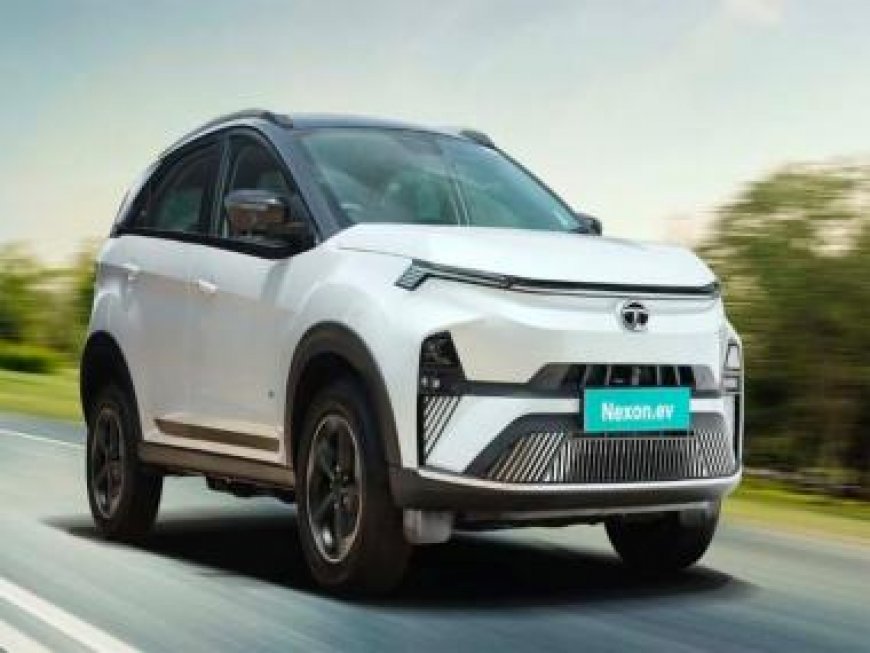Tata, MG cut EV prices in India, following Tesla, BYD globally. Is this the perfect time to buy EVs?
Tata, MG cut EV prices in India, following Tesla, BYD globally. Is this the perfect time to buy EVs?

In a significant move echoing Tesla’s recent price cuts, Tata Motors and MG Motor have substantially reduced the prices of their electric vehicles (EVs) in India.
This strategic manoeuvre comes just days after Elon Musk announced a price reduction for all Tesla EVs, sparking a trend of price reductions in the global EV market.
Internationally, EV prices have been on a downward trend, with Tesla leading the charge in a price-cut war to maintain its competitive edge against rivals like China’s BYD.
Elon Musk’s announcement last week, where he offered substantial discounts on certain Tesla models to spur winter sales, appears to have inspired automakers worldwide to follow suit.
Tata Motors, India’s largest electric car seller, announced deep price cuts on its electric versions of the Nexon SUV and Tiago mini. The entry variant of the Nexon EV now sees a steep reduction of Rs 1.2 lakh, with a base price of Rs 14.5 lakh (ex-showroom).
Similarly, the Tiago EV will witness a price reduction of up to Rs 70,000, with the base model now priced at Rs 8 lakh.
According to Vivek Srivatsa, Chief Commercial Officer of Tata’s passenger car electric mobility division, these price reductions reflect the company’s commitment to passing on battery price reduction benefits to customers.
With battery costs constituting a significant portion of the overall EV cost, Tata Motors aims to accelerate the mainstream adoption of EVs through these measures.
Meanwhile, MG Motor has also slashed the prices of its electric offerings. The company reduced the ex-showroom price of its Comet mini electric by Rs 1 lakh, bringing the car’s price down to Rs 7 lakh.
Additionally, MG Motor introduced a new lower-priced entry variant of its ZS green SUV, now starting at Rs 19 lakh compared to the previous price of Rs 22 lakh.
The perception that electric cars are excessively expensive to purchase may no longer align with reality, particularly in light of recent price reductions by manufacturers such as Tata Motors and MG Motor.
With these reductions, consumers could potentially recoup any additional costs associated with buying an EV within a year, especially considering their lower running costs per kilometre and subsidized registration charges.
The decline in electric vehicle prices is largely driven by falling battery prices, which are expected to propel EVs towards price parity with fossil fuel models.
According to a September 2023 report by the Rocky Mountain Institute (RMI), battery costs are projected to halve this decade, from $151 per kilowatt hour (kWh) in 2022 to between $60 and $90 per kWh.
This trend is anticipated to make EVs as affordable to purchase as petrol cars in every market by 2030, while also being cheaper to operate.
RMI’s analysis suggests that the rapid expansion of electric models in Europe and China will lead to a six-fold increase in EV sales by 2030, capturing a market share of 62 per cent to 86 per cent of total sales.
Furthermore, research from Exeter University’s Economics of Energy Innovation and System Transition (EEIST) project forecasts exponential growth in EV sales, indicating that EVs will reach a “tipping point” in price parity with fossil-fuel models as early as 2024 in Europe, 2025 in China, 2026 in the US, and 2027 in India.
This parity is expected to occur sooner for smaller vehicles compared to medium-sized cars.
Additionally, the research suggests that global oil demand for cars peaked in 2019 and will decline by at least 1 million barrels per day every year after 2030, further highlighting the growing significance of electric vehicles in the transportation sector.
(With inputs from agencies)
What's Your Reaction?



























































